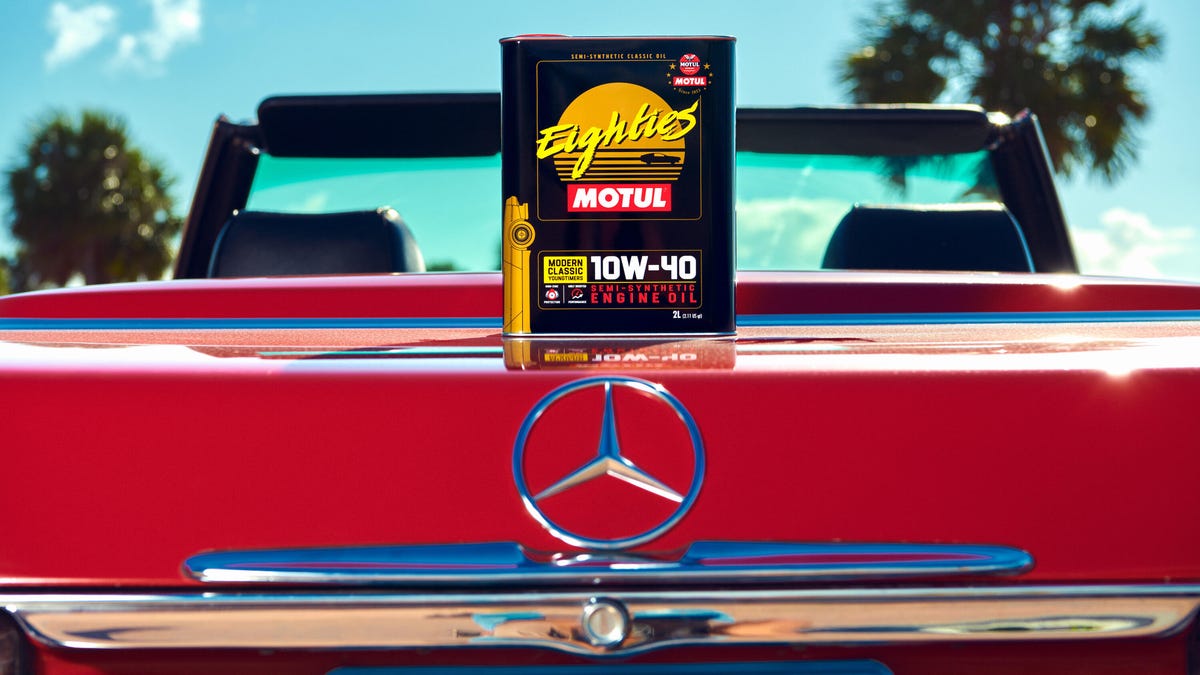Motul launches a line of engine oils targeted at Radwood-era and earlier classic cars
There are several blends designed specifically for cars made from the 1950s through the 1990s.

Motul's formulated a special line of oils for classic and modern classic cars based on their age-specific needs.
Engine oil in general and what kind of engine oil you should run in your vehicle specifically are some of the most contentious topics around for car enthusiasts. There are whole internet forums -- big ones -- dedicated to just that. Of course, your car has a recommended weight of oil, but that's just the tip of the iceberg, especially if you have an older car. Motul wants to make the process a little easier for buyers with its new classic line of synthetic oils.
Why does the age of the car matter? Because different engines have components designed for a specific blend of additives. Some of those additives -- especially ZDDP, aka zinc -- aren't found in modern oils in the same concentrations for emissions reasons, which can lead to wear in older vehicles. This is why French oil company Motul has engineered a line of oils targeted at different ages of classic cars, it announced Wednesday.
Pre-1980s cars, for example, often lack catalytic converters and have engines with flat tappet valvetrains and generally looser tolerances. These engines benefit from a heavier oil with a lot more zinc since they need the protection zinc offers and don't have to worry about its catalyst-killing properties. These cars -- like my old Mercedes -- could use either Motul's Classic Oil 20w50 or its 2100 Classic Oil 15w50.
Cars from the 1980s saw tighter engine tolerances and more emissions control equipment, and forced induction (aka turbos) became much more common. These engines -- like the one in Roadshow editor Chris Paukert's Nissan Pao -- have different needs than the ones in older cars. They still need a fair amount of zinc, but these engines are designed for lighter-weight oils, so the Classic 80s oil comes as a 10w40.
The cars of the 1990s got much more advanced -- as with Roadshow's Tim Stevens' Toyota MR2 -- and so we saw much higher-revving engines with more sophisticated valvetrains -- think Honda's VTEC, for example. These required thinner oil still, 10w30 in the case of Motul Classic Nineties, and even less zinc to prevent damage to their delicate catalytic converters.
If that all seems a little too confusing, don't worry. One thing that basically every engineer and oil expert agrees on is that it's more important to change your oil regularly than it is to worry about what brand or kind of oil is going in the vehicle, so stick to your owner's manual and you'll be fine.
If you want to try out the Motul Classic or Modern Classic oils, they're currently available for preorder through Summit Racing, with broader availability expected soon.

